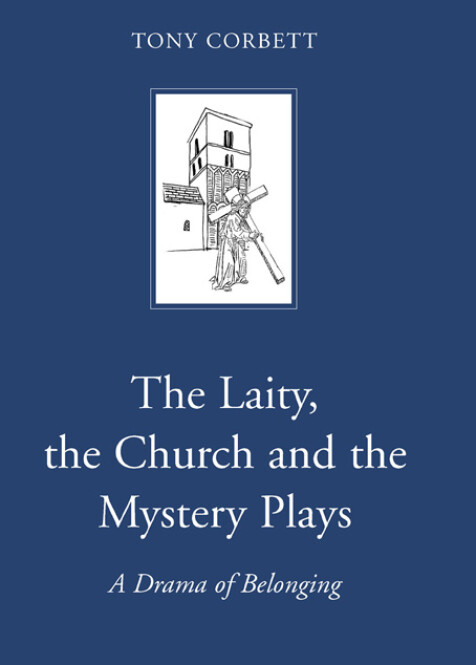The laity, the church and the mystery plays
A drama of belonging
Tony Corbett
‘Medieval theatre is often mentioned, particularly by community-based theatre practitioners, as an exemplar of participatory practice. The broad belief is that the mounting of the mystery plays was a huge communal undertaking bringing together both young and old, rich and poor. While some of these interpretations may be partly true, Tony Corbett, in his thorough investigation of the relations between the hierarchy of the medieval Church and the laity via the mystery plays, portrays a less radical, idealistic conception of the plays and their performance and ultimately suggests a conservative orthodoxy as the main trait inspiring the plays’ initiation … Corbett navigates a rich network of social, political and religious contexts to elicit evidence for his point of view. In doing so he has added considerably to the debate on the nature of medieval drama and tells the familiar tale of an institution out of touch with its own people', Declan Mallon, Irish Economic and Social History (Spring 2011).
‘The mystery plays, inspired by biblical stories, were an important feature of lay Christianity across much of Europe for centuries before the Reformation and, despite official disapproval, continues in England long after the Reformation was introduced. Corbett argues that the form the plays took expressed the spiritual and social concerns of a considerable section of non-clerical society. This lay system, he argues, was more complex and layered than the belief system which the official Church provided for the laity. In particular he examines the guilds which put on these plays and their intentions in doing so. The place of prayers such as the creed, and the representations of Mary and Christ in these plays show that there was a different agenda at work from that of the Church’, Books Ireland (Summer 2009).

